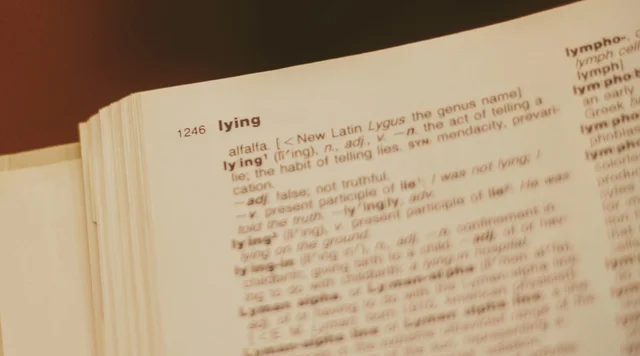
As we mentioned recently, there was some discussion at the 2025 D. Del. Bench and Bar about the role of Delaware counsel. We may have a more detailed post about that at some point in the future. But today I wanted to offer some thoughts on one specific thing that good Delaware counsel does: avoiding allegations of dishonesty or bad faith.
Most Delaware counsel tend to be involved with filings of one type or another. Under the Local Rules, association with Delaware counsel is required, and Delaware counsel must be the registered users of CM/ECF.
In practice, that means we handle a ton of filings, typically drafted by out-of-state co-counsel. Delaware counsel's level of involvement in these filings varies. We've all heard of "mail drop" counsel who basically just file whatever is thrown at them. But normal Delaware counsel will want to, at a bare minimum, read what they are filing, correct obvious mistakes (factual or legal), and confirm that the filing follows the Court's rules and procedures.
Beyond those items, good Delaware counsel will—again, along with many other things—make efforts to ensure that nothing in the brief or motion they are filing accuses the other side of dishonesty, false statements, or misrepresentations to the Court.
Why is including that kind of material a bad idea? In my opinion, it hurts your argument, because:
- You're setting too high of a bar for yourself. The Court operates on the assumption that litigants are being honest. If you allege dishonesty, the Court is going to want to see some strong support for that. You'll not only need something showing that a party or its counsel said conflicting things, but also something that shows intent. The vast majority of the time you aren't going to meet that bar.
- You'll lose credibility. When you allege dishonesty or misrepresentations without smoking gun evidence, in the end, you are the one who loses credibility because now you are the one making false allegations. Worse, parties sometimes seem inclined to make these kinds of claims when the other side has a strong good-faith argument on a particular point. At that point, they are basically running head first into a wall, because the Court is going to figure out who is wrong when it reads the citations—and it's probably not going to be the person with the strong good-faith argument.
- You'll distract the Court from the merits of your position. Do you want the Court thinking about the merits of your position, or about whether you really offered enough support for the Court to find that the other side "intentionally misrepresented" the holding of some case?
- It looks bad. Some people seem to want to make these allegations repeatedly in brief after brief, as if they will help win on the merits. That's just not how we do things in the District of Delaware. Repeating these kinds of unsupported allegations just makes an attorney look out-of-place and inexperienced.
- The Court does not like it. I listed this one last, because to some people it's somehow less convincing in light of their duty to their clients. But it's true. Members of the Court have repeatedly said as much, including at the Bench and Bar last week. And I can't recall the Court ever saying "boy, I'm glad you told me how you think opposing counsel misrepresented the status of their discovery during the meet-and-confer."
Of course, your mileage may vary. Some standards, such as fraud or inequitable conduct, call for allegations of dishonesty (which is also one reason they tend to be hard to prove). Others require a showing of bad faith. In those cases, obviously, you may need to make these kinds of allegations.
What Should You Do Instead?
I'm not saying you cannot raise these issues in a typical case. If you actually have a strong record showing bad behavior on the part of opposing counsel, you can raise it. But I would keep it factual. You don't need to label the behavior as "lying," "misrepresenting," or "bad faith." If the record is good enough, opposing counsel's actions will speak for themselves (and if not, you have nothing to gain from labeling it anyway).
Concepts to Avoid
Here are some troublesome words that often catch my eye:
- Lying, Liars, Lies, Lied
- Dishonest
- Misrepresent
- False / Falsely
- Bad Faith
- Specious / Spurious
- Prevarication (come on now, seriously?)
In addition to words like those, there are more nuanced ways to allege bad faith and dishonesty that I would still avoid, including things like:
- Hid
- Surreptitiously
- Misled
- Withheld
- Covered up
- Intentionally
- Deliberately
Of course, some of these may be acceptable in certain contexts. You can't just use ctrl-f to find and delete them all.
Personally, I'm usually OK with "misstate" or "mischaracterize." In my view it's fine to say that opposing counsel is incorrect or wrong about something—in fact, it can be critically important. That's really all those words do. But I've sometimes heard the Court and others comment on those kinds of words as well, suggesting they imply malicious intent, similar to "misrepresent." That's something to keep in mind.
I Have No Recent Case to Put Here
Usually I'd end these posts with an example of a recent case—but I haven't seen any lately on this issue. This is really just my opinion as a District of Delaware litigator, a former clerk, and someone who serves as both lead and Delaware counsel.
But if you are someone who still wants to include these unsupported and seemingly random allegations of dishonesty in your motions and briefs, I promise you: it is not helping your cause.
If you enjoyed this post, consider subscribing to receive free e-mail updates about new posts.





